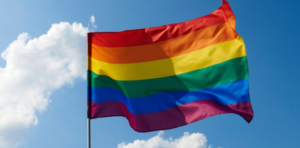
Five takeaways from Supreme Court’s verdict on same-sex marriage
In a significant judicial decision, the Supreme Court of India delivered a verdict on same-sex marriage, shaping the country’s stance on this critical issue. Here are the five major takeaways from the ruling:
Unanimous Rejection of Same-Sex Marriages
A five-judge Constitution Bench, headed by Chief Justice of India (CJI) D Y Chandrachud, took a unanimous stand by declining to recognize same-sex marriages. The Bench, which included Justices Sanjay Kishan Kaul, Ravindra Bhat, Hima Kohli, and P S Narasimha, asserted that there is no fundamental right to marry under the Constitution.
Special Marriage Act Remains Unaltered
All five judges of the Bench, including CJI Chandrachud and Justice Kaul, unanimously agreed that amending the Special Marriage Act, 1954 to allow same-sex marriages through gender-neutral language is not feasible. The petitioners had sought a reinterpretation of the word “marriage” to include “spouses” rather than “man and woman.” They had also requested the removal of gender-restrictive provisions within the Special Marriage Act.
Diverse Opinions Presented
Among the five judges, four — CJI Chandrachud, Justice Kaul, Justice Bhat, and Justice Narasimha — provided individual opinions. Justice Bhat, Justice Kohli (who concurred with Justice Bhat), and Justice Narasimha formed the majority opinion. In contrast, CJI Chandrachud and Justice Kaul presented minority opinions in favor of extending civil unions to same-sex couples.
Consideration of Rights
All five judges acknowledged the government’s commitment to establish a high-level Cabinet committee, which will examine the rights that can be granted to non-heterosexual couples. These rights may encompass aspects such as the opening of joint bank accounts, same-sex spouses being beneficiaries for provident funds, pensions, and inheritances, as well as granting them the authority to make medical decisions for their partners.
Challenging CARA Guidelines
The minority viewpoint presented by CJI Chandrachud and Justice Kaul challenged specific guidelines set by the Central Adoption Resource Authority (CARA). These guidelines prohibited same-sex or unmarried couples from jointly adopting a child. CJI Chandrachud argued that it is discriminatory to assume that only married, heterosexual couples can provide a safe environment for raising children.
This verdict marks a significant development in the ongoing discourse on same-sex marriage and civil unions in India. It not only addresses legal complexities but also underscores the critical issues surrounding equal rights and discrimination in the country.
